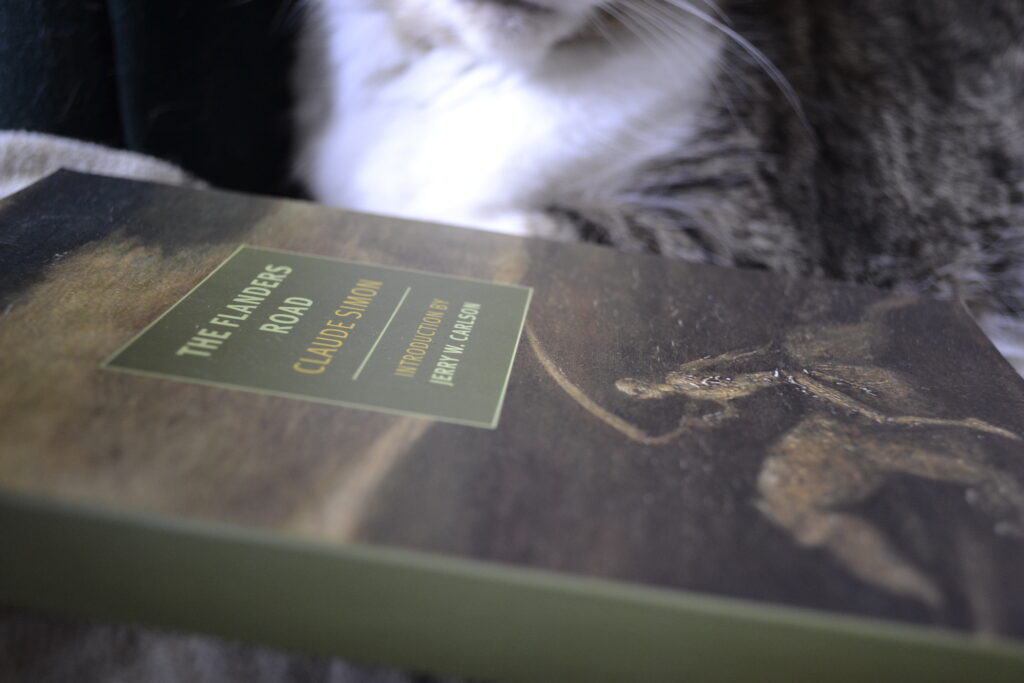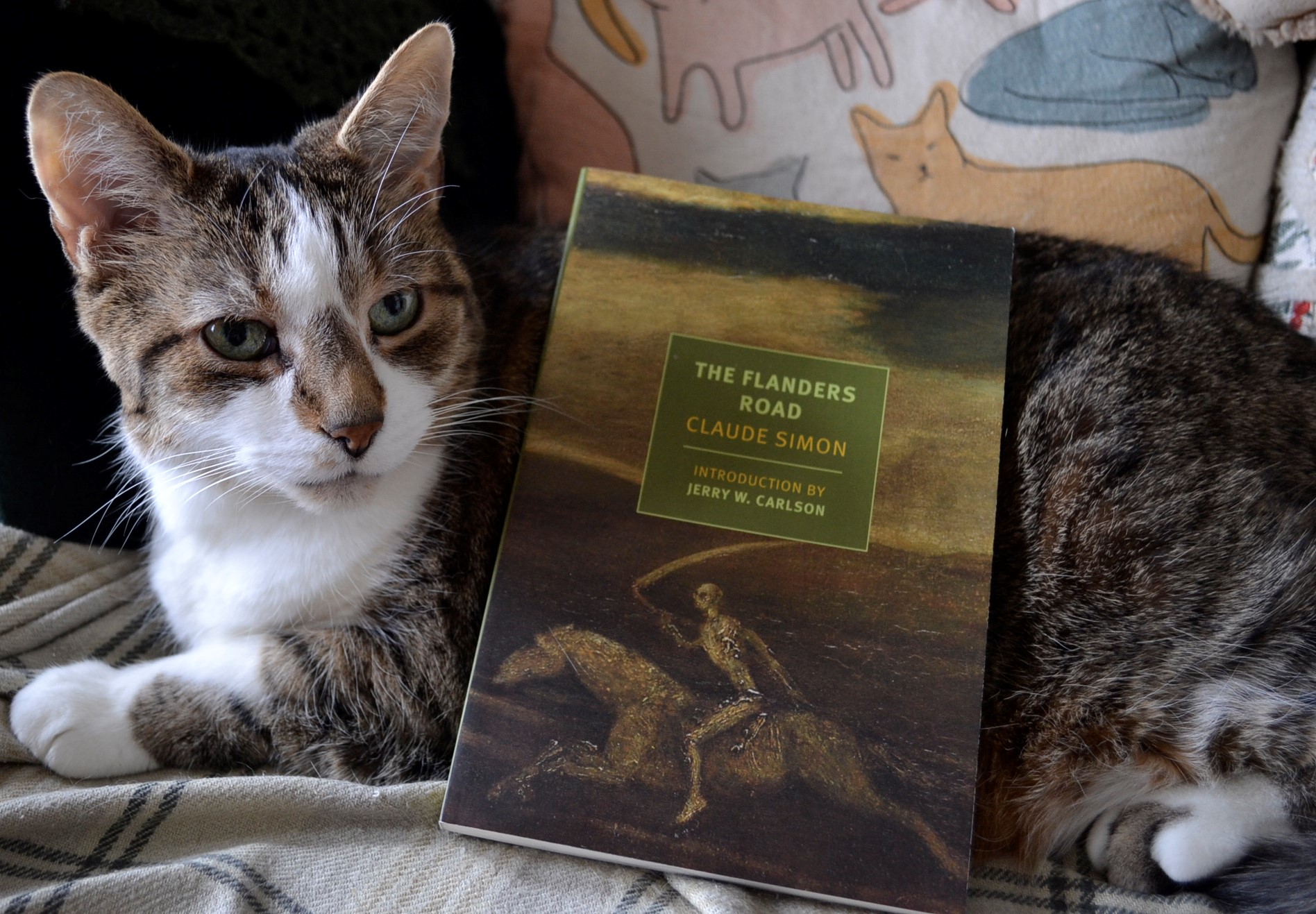Rainy Weekends
It might not be a popular opinion, but there’s something a bit magical about a rainy weekend. I’m sitting inside, enjoying the smell of petrichor while the cats all gather at the screen door. They’re watching the abundance of chirping blue jays in the trees just beyond our backyard. I’m watching my lovely spouse plant the first wave of flowers into our container garden. The grass is so thick that it nearly needs a mow, and I saw the first of our neighbours get out their lawnmower last week.
But right now, it’s too damp to worry about the more stressful part of yard work. Instead, it’s like the bursts of drizzle give you permission to take a moment and notice the freshness of the new growth. To think about plans and not give them the weight of logistical considerations.
Which is great, because the logistics are usually where I get weighed down. Somewhere after we finally decide that it’s time to order soil and the struggle of putting that soil in after I remember that the wheelbarrow has a flat tire we didn’t bother to fix last year.
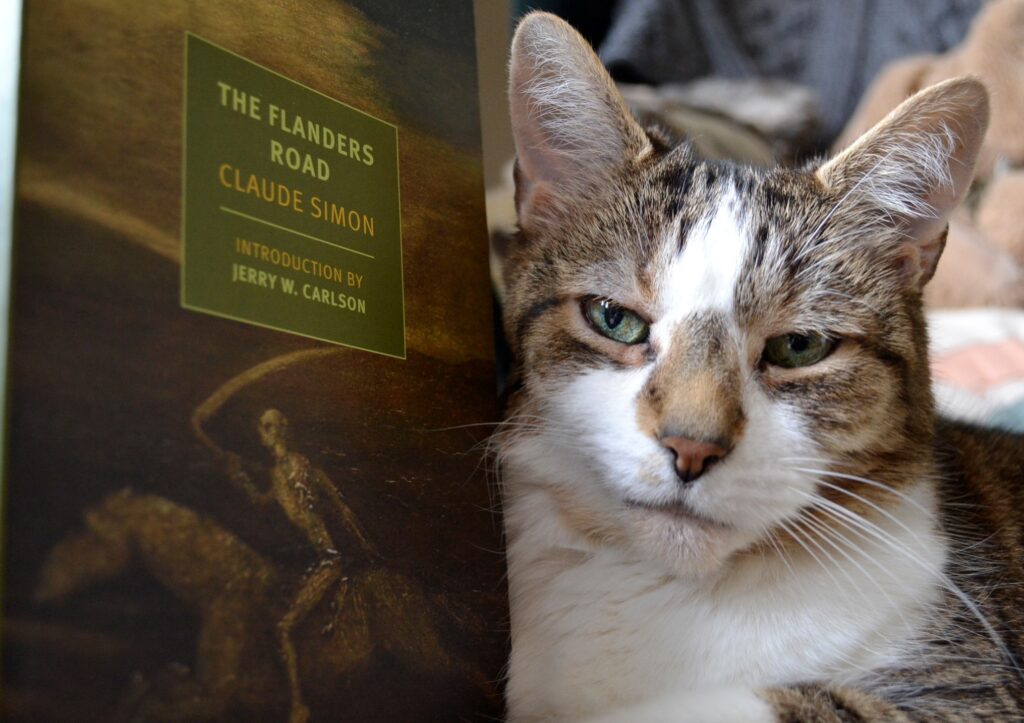
Following Prizes
After spending the last year attempting to read everything new and notable that I could get my hands on, I realized just how amazingly overwhelming such an undertaking is. There are issues of space inside the house, and then financially the cost is more than we can really afford — even if I somehow developed infinite reading time and concentration. But despite the disappointment, I’m grateful to know my limits and I’m grateful that I’ve finally sorted out which prizes are worth following.
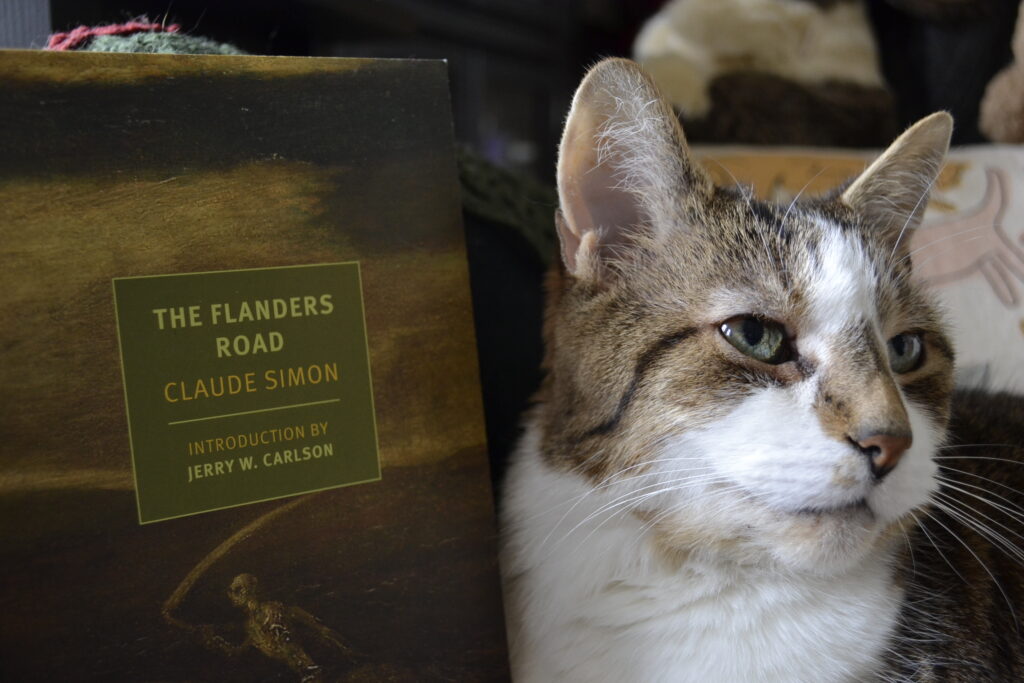
Particularly, I try to read most of the International Booker Prize longlist as well as most of the Giller Prize longlist. I also read almost every Nobel Prize winner that I can find. I won’t tell you that every book and every writer turns out to be great, but often even the books and writers I don’t care for have something in their work that is worthy of interest or further study.
Such is the case with Claude Simon. I mostly purchased The Flanders Road because it was a New York Review of Books book from a writer that won a Nobel Prize for Literature. After reading it, I don’t think I’ll be reading much — or any — more of Simon’s work, but at the same time that didn’t render this novel a complete waste of time.
The lesson here is that it’s important to give some literary prizes a try and see what works for you as a reader. You might decide to completely forgo any award selections, but you might also find that it really broadens your reading horizons.
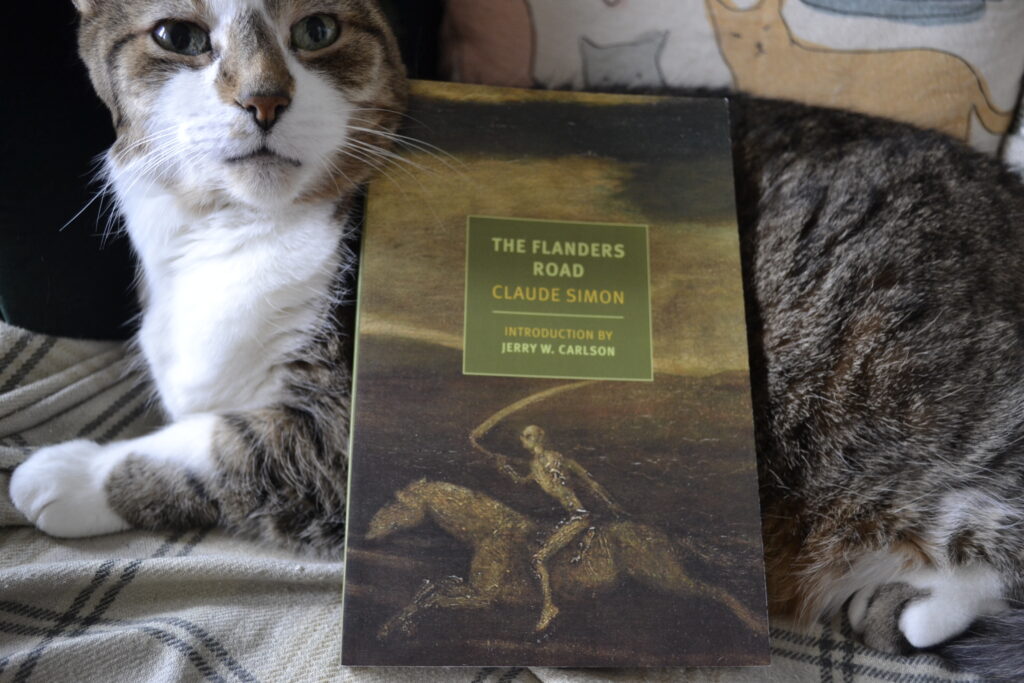
A Lesson in Patience
The style of The Flanders Road can be off-putting for some, though in my opinion it is the primary reason to read this novel. Instead of relying on a linear structure, Simon instead uses a single traumatic event — the death of the narrator’s captain at the hands of a German sniper during the second world war — and keeps circling back to it, expanding and contracting time around it so that everything before the event and after it is defined through the lens of what happened. It’s a brilliant exercise in what structure can do and how it can be molded to suit a specific story and make a powerful conceptual statement.
However, it’s important to note that, because of this structure, it takes some time for the reader to get used to the pattern of how the prose flows. The reader also needs a bit of patience to be able to leave some aspects of plot to dangle and be filled in sometimes over a hundred pages down the road. It’s not a style for everyone, but it can be richly rewarding to read a novel this complex.
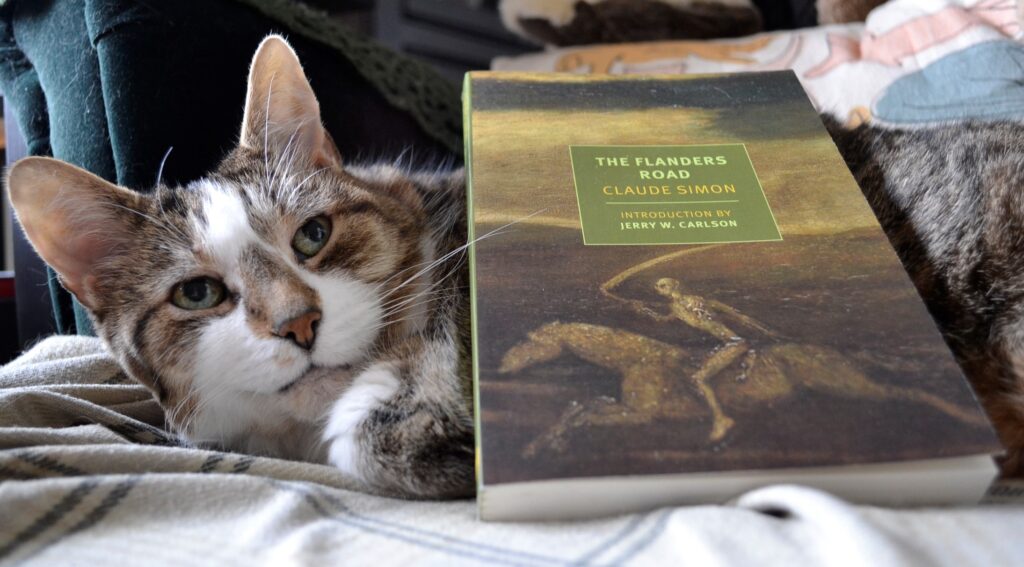
Description
I will note that if you do not like to read narratives with graphic animal death and cruelty, this is not the book for you. I will also note that there are a few distinct reasons I am not compelled to read more of Simon’s work, one of which being that this novel features some of the worst descriptions of female genitalia that I have ever read. And I don’t mean to say it’s just graphic; for the record, that doesn’t really bother me if the narrative warrants it. In this novel, it strays into misogynistic — and that I find intolerable.
As for the rest of the description, it can render the surroundings and characters murkier rather than clearer, but it does create an atmosphere of confusion and violent chaos which is exactly what the author is trying to accomplish.
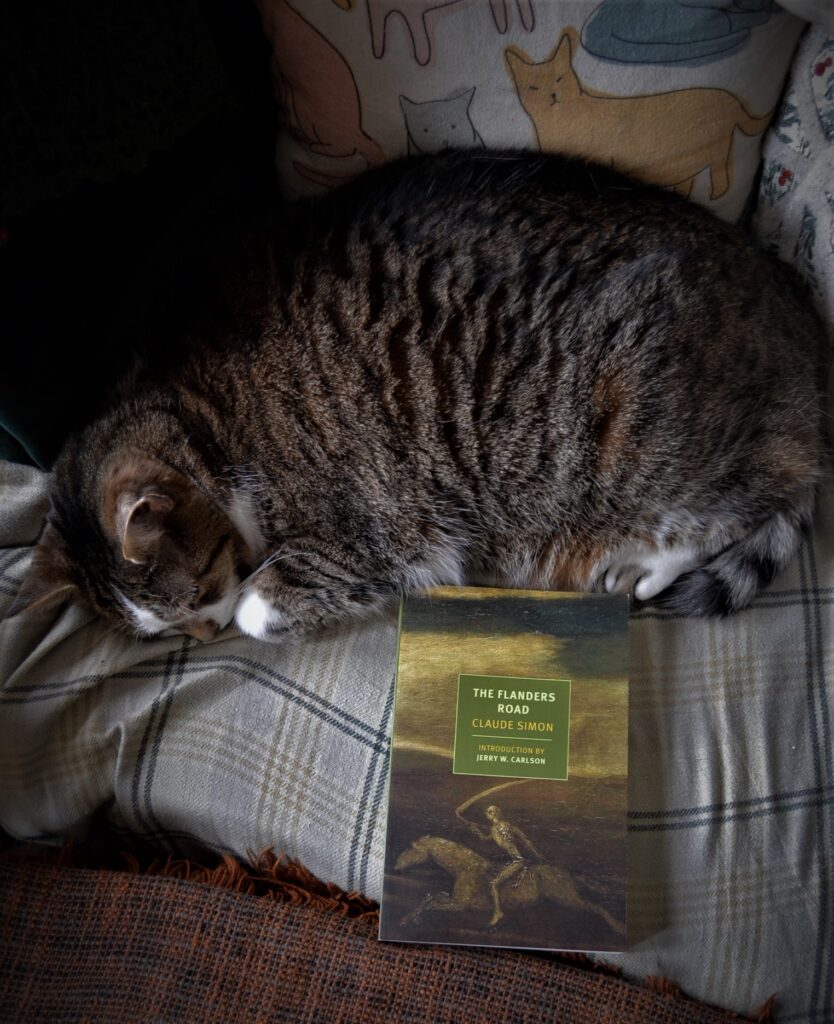
Plays and the Playoffs
For the first time ever, I find I am actually confronted with the conundrum that I have heard many complain about. We’re going to a play tonight which we booked over six months ago, but the big hockey game is on tonight — at the same time! I used to sit and silently mock those that I saw at intermission checking the score and lamenting that they wouldn’t be there to watch the Leafs win or lose. I used to think ‘it’s just a hockey game.’
And now I have become one of those people. And yes, I will definitely be checking the score at intermission and lamenting alongside them. I apologize from the depths of my heart for my many years of overly harsh judgement. I now totally understand.
